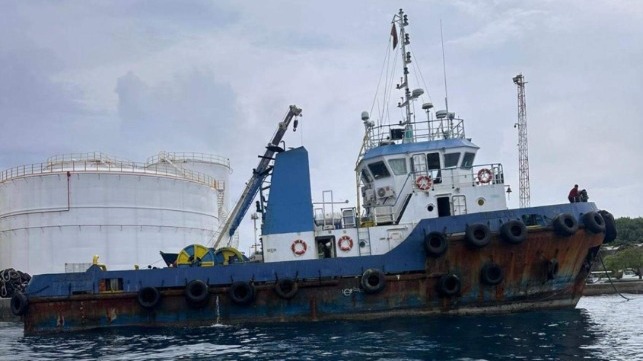ITF Calls Out "Worst Case of Seafarer Abandonment Ever Seen"

The International Transport Workers' Federation has identified another Mideast vessel operator that has allegedly abandoned multiple ships and their crews, without supplies or wages. According to ITF, the parties that would ordinarily take responsibility - the owner, flag state, or the nation of ownership - have not stepped forward to help.
According to ITF, the UAE-based shipowner Middle East Marine LLCd has had 17 abandonment cases since late 2022, in locations across South Asia. The agency says that it has responded to abandonment claims aboard 18 of the firm's ships from Bangladesh to India to Sri Lanka. The majority of the seafarers involved are from Myanmar, Indonesia and India.
The affected crewmembers have reported non-payment of wages, lack of food, dirty water, refusal of access to health care, and withholding of passports and medication. These are abuses associated with forced labor, routinely found in corners of the fishing industry but less often encountered in commercial shipping. ITF - which handles dozens of abandonment cases every year - called it the "worst case of serial seafarer abandonment ever seen."
Middle East Marine is an established firm based in the UAE. It says that it provides a wide diversity of commercial services, including chartering, project cargo, container repositioning, salvage & towage, bunkering, armed private security, crewing, shipmanagement, and small craft chartering. It has four locations in the UAE and India.
"My salary hasn’t been paid for more than three months – but there are some crew members unpaid for as long as seven months," one crewmember told ITF. "The company did not supply provisions and fresh water – sometimes we were just fishing for survival. All crew members are getting depressed, and our families are getting in debt to survive."
The Maritime Labor Convention requires twice-monthly payment of wages. After non-payment for two months or deprivation of food and water, a vessel is considered abandoned. This internationally-recognized category for serious mistreatment of seafarers - who often earn no more than a few dollars an hour, even when paid - should trigger action by the flag state and the insurer, according to ITF.
In this case, however, this system appears to have hit a dead end. ITF says that authorities in the UAE have not taken action on this crew abandonment case, though the company in question is headquartered in their jurisdiction. "It’s hard to comprehend how a company registered in the UAE can behave like this with impunity. Middle East Marine is a stain on the global maritime industry," said Steve Trowsdale, ITF's Inspectorate Coordinator.
According to ITF, Middle East's flag registry of choice - a Greek-administered flag that markets a customer-centric digitalized service model - has not responded once to inquiries about the years-long list of human rights abuses allegedly perpetrated by its client.

that matters most
Get the latest maritime news delivered to your inbox daily.
"It's been shocking to see seafarers facing such extreme exploitation, dangerous working conditions and limited rights. No pay, inadequate living conditions, lack of legal protections, and restricted freedom of movement – it's akin to modern-day indentured servitude," said Sandra Bernal, ITF's Network Coordinator Asia Pacific Region.
The same flag state has previously been identified as a registry of choice for sanctioned North Korean operators, who need to switch flags often in order to mask sanctions evasion. "Put simply, North Korean smuggling networks know that these registries are not monitoring the vessels which sail under their flag," former UN sanctions enforcement expert Hugh Griffiths told AFP last year. The registry says that it has recently increased its sanctions-enforcement efforts, with help from a third-party contractor.
